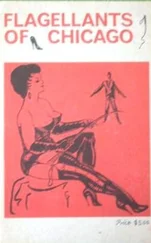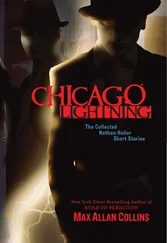“Me too,” she whispered as she looked at my face and ran her fingers through my hair, then said, “Where’s that documentary movie you promised me?”
I was embarrassed, but she laughed loudly and said as she winked, “I was on to you from the beginning but I pretended to believe you.”
“When will I see you again?”
“That depends on you.”
“I don’t understand.”
“There’s something I have to tell you. I don’t know how you’ll take it.”
She had opened the door and left it ajar as she got ready to leave. Then she said simply, “I’m Jewish.”
“Jewish?”
“Are you shocked?”
“No, not at all.”
“Perhaps I was wrong. I should have told you from the beginning. But you’d have found out anyway. No one can hide their religion.”
I remained silent. She pulled the door to close it behind her and said with a mysterious smile on her face, “Take your time thinking about our relationship. You can call me anytime. If you don’t, I’ll still thank you for the wonderful time we had together.”
When instructor Karam Abd al-Malak Doss found out that he’d failed his MS exams for the second time, he went straight to see Dr. Abd al-Fatah Balbaa, chair man of the department of surgery at Ain Shams Medical School. It was a hot day in the summer of 1975. Karam went into the office drenched in sweat from the heat and agitation. When the secretary asked him why he wanted to see the chairman he said, “It’s a personal matter.”
“Dr. Abd al-Fatah Bey went to perform the midafternoon prayers at the mosque.”
“I’ll wait for him,” said Karam defiantly and sat in the chair facing the secretary, who ignored him and went back to reading some papers in front of him. A whole half hour passed before the door opened and Dr. Balbaa’s hulking figure, balding head, crude, stern features, thin beard, and the amber prayer beads that never left his hand appeared. Karam stood up right away and approached his professor, who scrutinized him with a suspicious glance then asked him as if in alarm, “Yes, khawaga ?”
Dr. Balbaa used the khawaga as a term of address when speaking to all Copts, be they professors or messengers. He used this seemingly jocular term to disguise his profound contempt for them. Karam gathered his courage and said, “I hope you have a few minutes, sir, for a subject that concerns me.”
“Come on in.”
The professor went ahead and sat at his desk and motioned him to sit down.
“What can I do for you?”
“I’d like to know why I failed the exam.”
“Your grades were bad, khawaga, ” answered Dr. Balbaa right away, as if he had expected the question.
“All my answers were correct.”
“How do you know?”
“I verified them myself. Can we review the answer sheets? Please, sir.”
Dr. Balbaa played with his beard, then smiled and said, “Even if all your answers were correct, it wouldn’t change your result.”
“I don’t understand.”
“My words are clear. Passing the exam alone is not enough for success.”
“But this is against the university rules.”
“The university rules are not binding on us, khawaga . Not everyone who answers a couple of questions is allowed to become a surgeon with control over people’s lives. We select those who deserve the degree.”
“On what basis?”
“On important bases which I am not going to share with you. Listen, Karam. Don’t waste my time. I’ll tell you frankly: you were admitted in the department before I became chairman. Had it been in my hands, I wouldn’t have approved your appointment. Think carefully of what I am saying and don’t get angry. You will never be a surgeon. I advise you to save your time and effort. Try another department. I’ll personally intervene on your behalf.”
A heavy silence fell on the room and suddenly Karam cried bitterly, “You are being unfair to me, sir, because I am a Copt.”
Dr. Balbaa fixed him with a stern glance, as if warning him not to go any further. Then he got up and said calmly, “The meeting is over, khawaga .”
~~~~~~~~~
THAT NIGHT KARAM COULDN’T SLEEP at all. He locked himself in his room and opened a bottle of whiskey he had bought from a store in Zamalek. He drank nonstop and whenever he finished one glass he got more tense and stood up and started pacing up and down his room, thinking. How could he abandon surgery? He had enrolled in medical school and worked hard for years to fulfill one dream that consumed his life: to be a surgeon. He couldn’t change to another specialty. He would never give up surgery come what may. He knew that Dr. Balbaa’s authority was absolute, that his word was like irreversible fate. He had told him explicitly: Save your time and effort. You’ll never be a surgeon.
If he persisted in trying he would fail him repeatedly until he got expelled from the university, and Balbaa had done that more than once to other doctors. Jesus Christ, how can Balbaa permit himself to destroy the futures of others so easily? Didn’t he feel any pangs of conscience whatsoever when he did such injustice? How can he stand before God and pray afterward?
The following morning Karam took a warm bath and drank several cups of coffee to overcome fatigue and the hangover, and then he headed for the American embassy, where he applied for immigration. In a few months he was leaving O’Hare Airport to tread on Chicago’s soil for the first time. From the earliest days he came to grasp several truths. First, being a Christian was not a plus for him in American society, for to Americans he was, first and foremost, a colored Arab. Second: America was the land of opportunity, but it was also the land of cutthroat competition. Therefore, if he wanted to be a great surgeon he had to exert a tremendous effort to be at least twice as good as any American colleague. Karam fought valiantly for many critical years: he passed many exams and studied very hard. He would start in the early morning and go on until midnight without complaining or grumbling. He got used to contenting himself with four or five hours of sleep, after which he got up, alert and energetic. He spent days on end at the hospital, working all the time until he earned from his colleagues and professors the nickname “Dr. Ready” because he immediately accepted any task to which he was assigned. Every day he would be present at operations, attend lectures, and study his lessons. His great capacity for work surprised his professors and earned their admiration. When he got tired, the moment he felt he couldn’t go on anymore, Karam Doss would close the door and kneel before the cross he kept above his bed. He would close his eyes and repeat in supplication “Our Father who art in Heaven,” then pray to God to give him strength and patience. He spoke to the Lord as if he saw him in front of him: “You know how much I love You and believe in You. I’ve been wronged and you will give me back my rights. Bless me and don’t forsake me.”
The Lord answered his prayers, and he moved from one success to another. He completed his MS and MD with flying colors then got a position as a surgeon. He got the most important break in his life when he worked, for a full five years, as an assistant to one of the greatest legends of heart surgery in the world, Professor Albert Linz. That was the last step before the top for Karam Doss, and after this he became, as he had dreamed, a capable and famous surgeon who performed operations three days a week at the renowned Northwestern Memorial Hospital. Dr. Karam would arrive at the hospital at exactly 6:30 a.m., greet the workers busy cleaning the floor and exchange lighthearted words with the old black woman receptionist. He would put on his face that reassuring smile he’d acquired during his training as he answered the patient’s family’s anxious questions. Then he would take off his clothes and put on surgeon’s scrubs, and rub his arms, fingers, and fingernails with the brush and sterilizing solution. After that he would stand erect as the nurse wrapped the operating gown around him and tied it in the back, and then he would extend his hands, which she would fit into the gloves. It was only then that Karam Doss got rid of his ordinary day-to-day existence and acquired a mythical dimension, as if he were an imaginary person or a hero in an epic. He would become unique, lofty, invincible, using his will to control everything around him. He would become the embodiment of the famous saying “A true surgeon has the heart of a lion, the eyes of a hawk, and the fingers of a piano player.”
Читать дальше
Конец ознакомительного отрывка
Купить книгу












